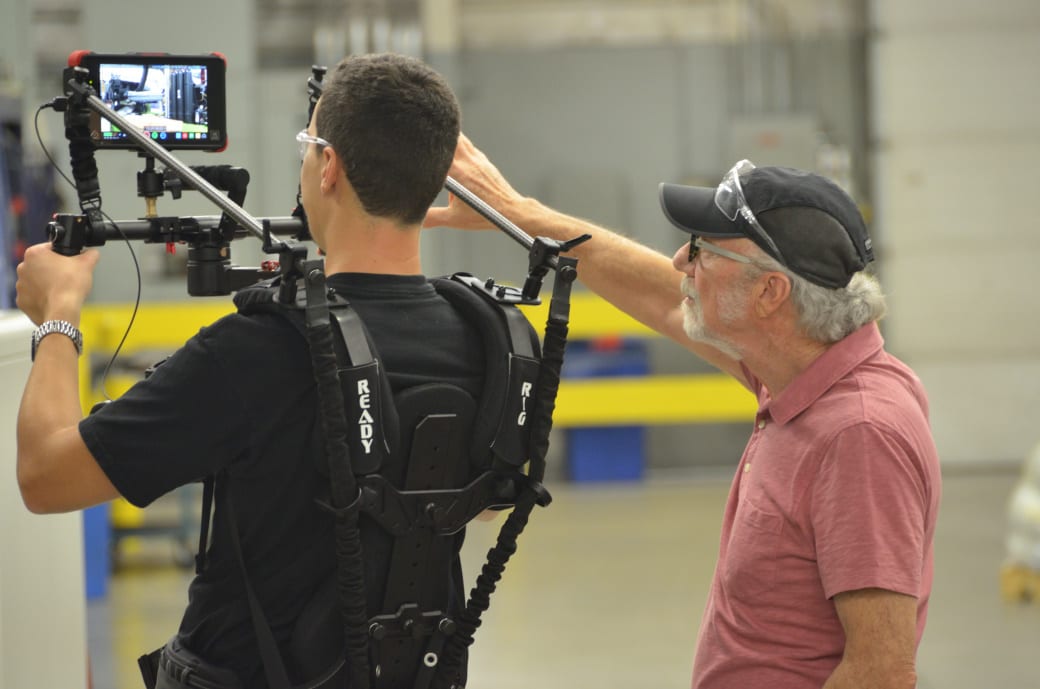A film director is responsible for overseeing and managing all aspects of a film’s production. Their job involves translating the script into a visual and auditory experience, making creative decisions, and guiding the actors and crew to bring the story to life. They collaborate with various departments, such as cinematography, production design, and editing, to ensure the film’s vision is realized. A film director also plays a crucial role in casting, rehearsals, and post-production, ensuring the final product aligns with their artistic vision. Ultimately, their job is to create a cohesive and compelling film that resonates with audiences.
What is the job of a film director?
In the realm of film directing, responsibilities encompass various tasks such as actor selection, script interpretation, rehearsal supervision, set location identification, budget and schedule adherence, and coordination with the film crew to achieve a cohesive and visually captivating final production.
What is the director’s job in film video production?

The role of a Video Director is to transform the approved script into a visually captivating video. They collaborate closely with the production team to ensure that the video aligns with the intended vision, providing guidance and direction to the crew in order to achieve the desired creative outcome.
Now, let’s distinguish between the responsibilities of the Director and the Producer. In essence, the Director focuses on the artistic aspects of the video project, while the Producer takes charge of the business-related aspects.
Directors collaborate closely with Video Producers to handle various tasks such as scheduling, crew selection, and budget management.
Do directors work for producers?
A Producer hires a Director because they believe in their talent. Similarly, a Director signs on to a project with a Producer because they know they will receive the necessary support. Making a film is a highly challenging endeavor that requires teamwork. Understanding the dynamic between a Producer and Director is beneficial whether you aspire to be one or work for one. It is important to note that the relationship between a Producer and Director in television differs significantly. The responsibilities mentioned in this article are just the fundamentals, but you can find more information on the Producers Guild website and dgaorg. If you are looking for information on film careers or specific topics, you can use the site search function.
Do directors write the script?

The role of a movie director does not typically involve writing the script. While directors like Ridley Scott, David Fincher, and Alfred Hitchcock have made significant contributions to cinema, they have not been credited as screenwriters for their most famous films.
Although there is a growing trend of directors who also write their own scripts, only 32% of the top-grossing films in the US have featured a writer-director in recent decades. So, if directors don’t write the script, what is their role in relation to it?
While directors may not be directly responsible for writing the script, they often spend more time with it than anyone else. Their job is to bring the written work to life visually, and to do that effectively, they must have a deep understanding of the screenplay’s themes, motifs, and overall tone.
What is the difference between a film director and a producer?

When it comes to organizing a major project or business, it is advisable to assign tasks based on individual strengths and establish a clear hierarchy of roles. In a business setting, you may find a director of operations and a director of business development. In artistic companies, responsibilities are often divided between an artistic director and a managing director. The former is in charge of the artistic vision, while the latter handles logistics, staffing, and finances.
Similarly, the filmmaking industry follows a structured approach to streamline the production process. The film director takes charge of creative decisions and artistic aspects, while the film producer(s) manages the business-related aspects from pre-production to post-production.
Is film producer a hard job?
“Producing a film is an incredibly demanding and physically intensive job. It entails working long hours, engaging in discussions with film executives, directors, and editors to create the perfect film. Managing the film’s finances and ensuring it stays within budget can also pose challenges. Throughout the production process, constant communication with other producers, industry talent, and crew members is expected.
When working on a larger film with a major studio, daily interactions with journalists, members of the public, and other executives are common. Filming may take place in remote and inaccessible locations, often at irregular hours throughout the day and night.
Salary figures provided are based on data from Indeed at the time of writing. Salaries may vary depending on the hiring organization, as well as a candidate’s experience, academic background, and location.
For more information on the role of a film director and how to become one, as well as details about the salary and work environment of a music producer, please explore your next job opportunity on Indeed.”
Conclusion
In conclusion, the role of a film director is crucial in the video production process. They are responsible for bringing the script to life, guiding the actors, and making creative decisions that shape the overall vision of the film. While the producer oversees the financial and logistical aspects of the production, the director focuses on the artistic and creative elements. Both roles are essential and work closely together to ensure the success of a film.
Being a film producer is undoubtedly a challenging job. They have to juggle multiple responsibilities, including securing funding, managing budgets, and coordinating various aspects of the production. It requires strong organizational skills, financial acumen, and the ability to handle pressure. However, the rewards can be great, as producers play a vital role in bringing stories to the screen and making a lasting impact on audiences.
While directors are heavily involved in the creative process, they do not typically write the script. The script is usually written by a separate screenwriter or playwright. However, directors may provide input and collaborate with the writer to ensure the script aligns with their vision for the film. They work closely with the screenwriter to bring the story to life visually and through the performances of the actors.
Directors do not work for producers in the traditional sense of an employer-employee relationship. Instead, they collaborate with producers to bring the film to fruition. The director and producer work together as a team, with the director having creative control over the artistic aspects of the film, while the producer handles the logistical and financial aspects. It is a collaborative partnership where both parties contribute their expertise to create a successful film.
In summary, the film industry is a complex and collaborative field where the roles of directors and producers are distinct yet interconnected. While the director focuses on the creative aspects of the film, the producer handles the business side. Together, they work towards a common goal of creating compelling and impactful films that captivate audiences worldwide.
Sources Link
https://onpointvideo.ca/video-production-glossary/what-is-a-video-director-and-why-do-i-need-one/
https://www.adorama.com/alc/producer-director-difference-film-set/
https://ie.indeed.com/career-advice/finding-a-job/what-does-film-producer-do
https://blog.celtx.com/do-film-directors-write-the-script/
https://www.careersinfilm.com/producer-vs-director/
You are watching: What is the job of a film director?






